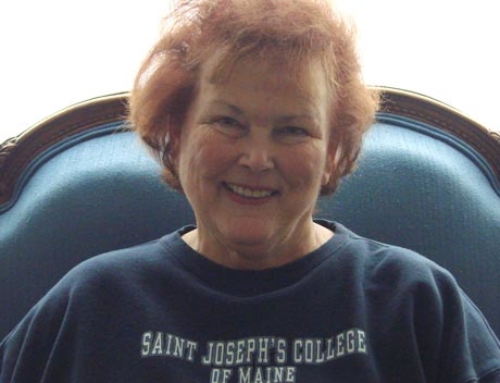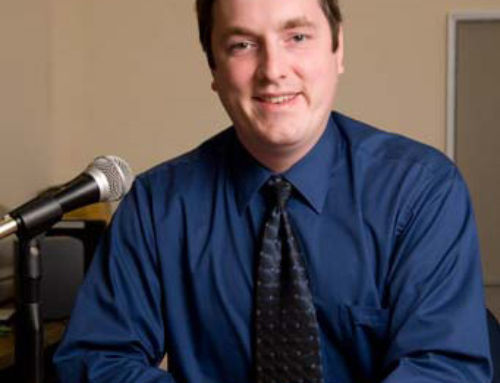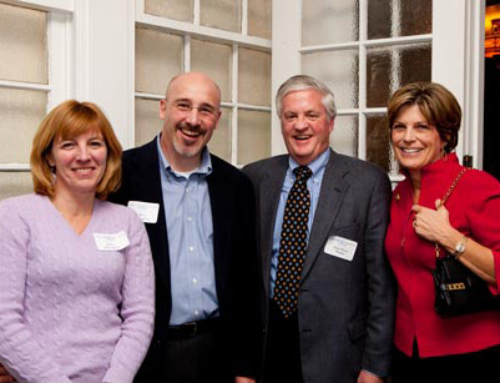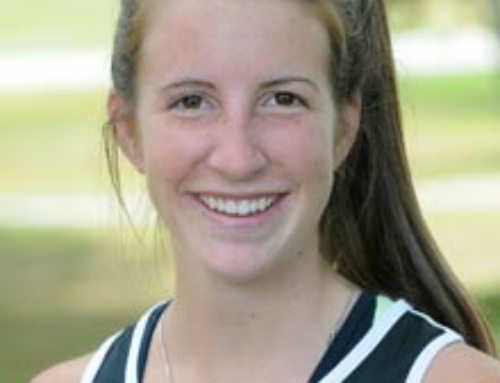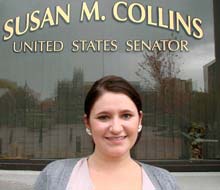 If you think political science is just about red states and blue states, you might be surprised. In fact, political science professor Stephen Aylward says he hasn’t found just one definition of the field that captures its breadth.
If you think political science is just about red states and blue states, you might be surprised. In fact, political science professor Stephen Aylward says he hasn’t found just one definition of the field that captures its breadth.
No matter how it’s defined, the relatively new political science major on campus is drawing a cadre of motivated students who like the idea of shaping a better world. Seminar-style discussions and class simulations of Congressional actions paired with service learning and internships help them learn about power relationships, collective choice and how value systems filter through society – all of which form the center of political science.
And then there are the campaigns - or, more accurately, the thrill of campaigns. Josh Bell '08 reports of his campaign for Vermont's state legislature, "Once you get bitten, it's hard to go back." A graduate student at Suffolk University at the time he ran as an Independent, he came in second and intends to run for office again in the future.
Bell came to Saint Joseph’s knowing he wanted to be involved with politics. In 2006 when he was a sophomore, the political science major was established, and he was able to complete a double major in classics and political science with a minor in history in time to graduate. He went on to earn a master’s in professional politics at Suffolk, and is now a graduate student at Providence College. He eventually plans to earn his doctorate in political science.
Chiara Ferrante ’10 agrees that the excitement and camaraderie of a gubernatorial campaign she joined was what ultimately drew her into politics. She now has a job as a staff assistant to Senator Susan Collins of Maine (see below).
But just beneath the headline-grabbing elections, political scientists look at all kinds of questions that easily cross-fertilize with sociology, history and economics. They want to know about society’s attitudes toward government, the role of citizen input in public policy, skills needed to influence political systems, factors that encourage people to vote, and even what type of statistics should be used to evaluate outcomes of policy decisions. In this era of globalization, they also look keenly at what makes nations cooperate.
Though not large in number, many political science majors at Saint Joseph’s tend to be activists by nature. History professor Michael Connolly, who advocated for the major’s establishment, says, “We get really interested students, and the 2008 presidential election really got students cranked up.”
After that election, an active Political Science Club formed, combining the former Democratic and Republican clubs on campus. The club’s co-president, Ashley Walukevich ’12 of Kingston, N.H., was an officer on the student council in high school and spent a week touring federal institutions in Washington, D.C., with the National Youth Leadership Conference. From then on she was sold. While at Saint Joseph’s, she was influenced by attending a conference at the United Nations and completing two internships with Senator Susan Collins’ office, where she answered countless calls about the economic stimulus bill and, later, the health care reform bill.
During her internship, she said she could see what she was learning in class being played out in the office.
“I like being involved and aware. I like reading the news and being informed,” she says. Her future plans include running for office or working for the federal government.
Courtney Hoffses ’12 of Presque Isle, Maine, was a Senate page in Washington, D.C., at age 16. Although she didn’t witness the legislative work done in committees, she was inspired by what she saw in the overall Senate. It made her want to get involved and accomplish more, both personally and politically. She is now the other co-president of the Political Science Club and hopes to join the Peace Corps’ Master’s International program, which combines international service and graduate school.
The political science faculty – Aylward, Connolly and historian Dr. Andrea Vianello – cover the four core areas of American government, including local, state, federal; comparative politics (which typically has a broadening effect because Americans don’t get exposed to many societies, partly because of geography); international relations, which covers diplomacy, strategy, and collective security; and political philosophy.
The majors often take electives in law and public policy, making strong use of service learning and internships in the court system, or for elected officials and nonprofit organizations.
“It’s been rewarding to see it develop,” Connolly says of the major, with its seminar-style classes and mix of motivated, active students, some of whom actually double major in history or major in history and minor in political science.
Two of the major’s professors are historians, and traditionally a happy companionship between the two fields exists. “We need the historical approach and the theoretical approach,” says Vianello. “In some ways, we are trapped by the past and still paying for the mistakes of the past.”
Then he adds, “I try not to transmit pessimism .…We need optimism in order to change things.”
Why the Garden Club couldn't save Youngstown
One of the most intriguing aspects of political science is called network analysis, which can be used to understand everything from international terrorist circuitry to why Youngstown, Ohio, chronically struggled to rebuild from the Rust Belt economic collapse of the 1970s. Network analysis came about because of the 9/11 attacks on the United States. Its practical approach looks at how organized groups (such as terrorist cells) interact. One component, especially relevant to terrorism, is tracking the money trails within networks.
However, network analysis can also be used to analyze how government and community groups operate. For instance, when a community group tries to bring new industries to town, it can not only show (with complex wiring diagrams!) how movements and organizations transmit information and engage each other within a wider community network, it can also predict how much and what kind of engagement results in forward progress toward a goal. Perhaps one of the most interesting books about this is called Why the Garden Club Couldn’t Save Youngstown.
Another interesting concept in terms of looking at community structures is called “civic society,” popularized by Robert Putnam in his 2001 book, Bowling Alone, which found the health of a democracy depends on how well its component parts bond together as communities. More importantly, he found that community organizations help citizens learn the skills of persuasion, negotiation and leadership needed in the public sector.
In other words, political systems need citizen inputs and citizens can learn skills that accomplish a common goal or sway a political system through joining community organizations. “We need to learn to compromise, run a committee, keep the work flow going, organize volunteers and so on,” says political science professor Stephen Aylward.
In Bowling Alone, Putnam says many community organizations that cultivated those skills have declined over the last 40 years (think bowling leagues, Boy Scouts, sewing circles), probably because of video games and other hi-tech entertainment. He states that without local civic engagement, the entire government in an area can wither, as shown in his research of regions in Italy. Putnam’s new book, Better Together, discusses groups that have done well in building civic society and also looks at the social and political influences of a whole new aspect of political science – Facebook and social media.
Chiara Ferrante ’10 started at St. Joe’s as a biology major more interested in theater than politics, but ended up as a history major minoring in political science. Her senior year, she interned in U.S. Senator Susan Collins’ office in Portland. After that, she joined the primary campaign for gubernatorial candidate Steve Abbott, and through campaign contacts, learned of a job opening in the Senator’s office in Lewiston. She was hired in August.
Her work often involves meeting with constituents to resolve issues with federal agencies, such as Veterans Affairs or the Immigration and Naturalization Service. (Many new minorities in Lewiston are from Africa and the Middle East.) She also checks regional media outlets for stories of potential interest to the Senator.
Outgoing and friendly, Ferrante says she loves helping constituents. She describes herself as more service-oriented than political and states Collins’ regional offices are nonpartisan. But Ferrante admits she loved the thrill of the Abbott campaign and working up to 60 hours per week working for something she believed in.
Ferrante says history professor Michelle Laughran encouraged her to attend a leadership conference for women at the University of Maine, which proved pivotal in her academic journey. She came back much more interested in how our government works, how Congress has changed, and how social movements take place.
“I had a real understanding of what I would do in my life as a result of Saint Joseph’s,” she says.
